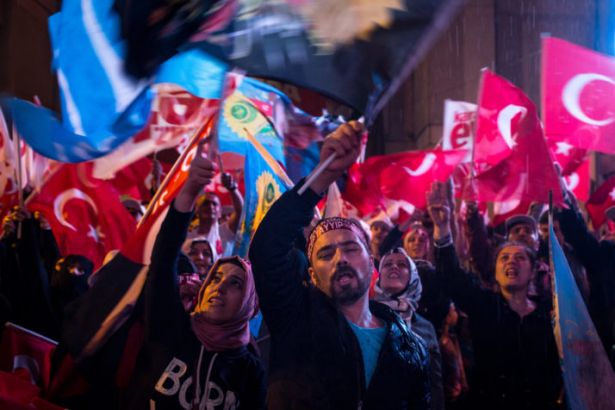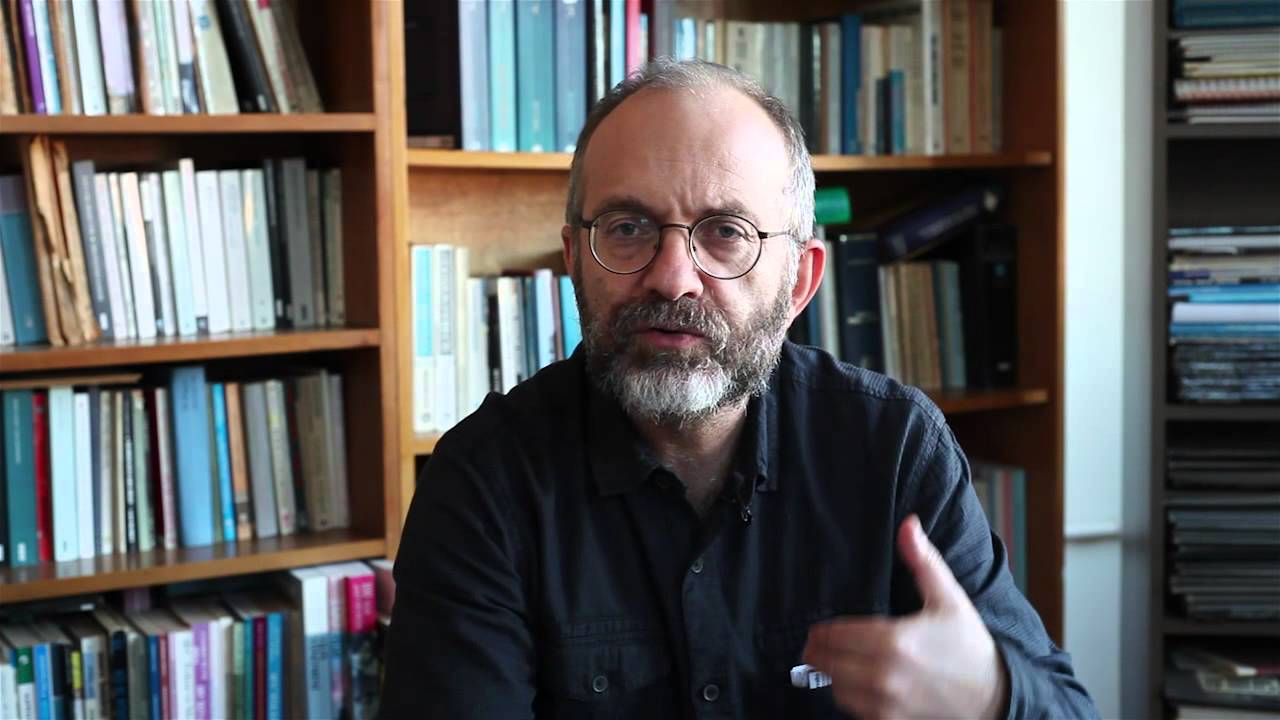Erdoğan's presidency: Is this silent counter-revolution in Turkey?

soL InternationaL interviewed Kemal Okuyan, First Secretary of the Communist Party of Turkey (TKP), soL columnist, on various political issues such as the controversial April 16 referendum, the new correlation of forces in Turkey's domestic politics, the general crisis of imperialism, the position of Turkey within the international crisis under the rule of President Recep Tayyip Erdoğan as a 'problem generator', and the possibilities for the popular movement against the capitalist rule and the corrupted political establishment in Turkey.
Turkish voters went to polling stations on April 16 to either support or reject government-backed constitutional changes that would convert the country's governance system into a presidential republic and therefore increase presidential powers. The fraudulent referendum results showed that the amendments to the constitution were approved by 51.41 percent of votes.
soL International: We would like to start with the debates on the legitimacy of the results. The opposition denounced the referendum as a rigged poll and they are taking it to the European Court of Human Rights. Erdoğan, on the other hand, insists on a clear victory. First of all, do you expect the referendum to be repeated? Also, how is this process perceived by the society? Do you think all these debates on legitimacy will affect the upcoming process?
Kemal Okuyan: I don't think that there is a debate on the legitimacy of the results. The referendum itself and the results have no legitimacy whatsoever. Even the statements coming from Erdoğan and his followers prove this; remember what Erdoğan said, "it is too late, this is finalised". The real problem is, there is no actor or mechanism to cope with this interesting situation. Social mobilisation would have been the only solution when all the state mechanism including the juridical system is under the control of Erdoğan. However, the social democrats and liberals who still have an influence on the broad and unorganised sectors of the society are betting on another card: To compromise with Erdoğan! This is a strategy based on the interests of the monopoly capital. They are trying to use the referendum results as a tool to have control on Erdoğan. A “moderate Erdoğan” fits the interest of the ruling class and EU for sure.
So, it would be surprising for European Court of Human Rights to accept the appeal of the opposition party. This process is a very long process and of course, it would be a political decision. In addition to that, there are no conditions in Turkey to repeat the referendum. Nobody trusts the Supreme Electoral Court, no one can control the tensions.
Theoretically, there are two factors that can overcome this deadlock. One is a rapid change in the alliances within the imperialist system where contradictions deepen day by day. This will not at all the people; as we all say, Erdoğan is not the beginning or the end of the world. Another factor is, of course, a possible popular movement with a clear class basis. And as we always say, this is the only future for the country.
s.I: It is clear that the referendum was not simply about implementing a new system of government. In the debates along recent years, we have witnessed that the secular character of the Turkish state and its unitary structure, both known to be the red lines of the establishment, were opened up for debate. What do you think is going to happen? Is Turkey on its way to becoming another Islamic republic in the region? Is this a silent counter-revolution?
K.O: TKP has been warning the working masses and the intellectuals from the beginning that Erdoğan and his party should not be seen as an archaic party that is simply trying to change the course of the history. Yes, they are absolutely pro-Ottoman or referring to what we call since 2008, neo-Ottoman. There is no doubt about that. Neo-Ottomanism in one sense is expansionism, a clearcut imperialist strategy. But on the other hand, it is also a weakening of the centralised state. After the dissolution of Soviet Union, international capital managed to split many states into pieces, members in UN nearly doubled, I myself as a politician haven't even been able to keep up with the names of some countries!

Neo-Ottomonism is a policy that fit both Turkish capitalism which was trying to find new opportunities and the big monopolies (we should take into account that Turkish big capital is an organic part of it).
However, this policy collapsed. For several reasons. First of all, the so-called Arab Spring, which turned to be the manipulation of the poor Arab peoples' justified reaction to some Arab regimes by the imperialists failed in Syria. And of course, Turkish society showed in different ways that an Islamic political system is not acceptable. AKP got rid of secularism but failed to establish an Islamic rule. Turkey is floating in that sense and the only force that can unlock this lock is the working class.
I want to say something about the concept of counter-revolution. Turkey faced a counter-revolution in 1980 when the army organised a coup fully backed by NATO. The coup was against the working class, against the communists and all progressive forces. Since then, the severe attack of the capitalist class has never ended. However, AKP, as another counter-revolutionary actor is something else. This party dared and managed to destroy the main gains of the bourgeoisie revolution in Turkey in the 1920’s! They managed to destroy all that but they have no strength to establish a “new” system! Turkish capitalism is trapped and this is one of the reasons for our optimism.
In the statements of Communist Party of Turkey and your personal columns, you always emphasise that the capitalist class in Turkey supports the presidential system. But what we have seen during recent years was a TUSIAD (Turkish Industry and Business Association) announcing its worries for the state of affairs in Turkey. Sometimes they even opposed Erdoğan. What do you mean exactly when you claim that the Turkish bourgeoisie advocates for the presidential system? Why would they?
The promotion of the presidential system is not something new in Turkey. Many years before AKP government, it was on the agenda thanks to one of the previous presidents, Turgut Özal.
What is the presidential system? In few words, it is increasing the power of the executive body. That means, although in years the capitalist class reshaped the parliaments in all countries to better serve their interests, although parliaments have always been an instrument of the ruling class, in the final analysis, they want more and more! In fact, they are happy getting rid of some existing political institutions. No discussion, no accountability, no judgement.
The problem here is some aspects of Erdoğan. Erdoğan is a problem generator. He is not predictable. He wants to be the sole regulator of Turkish capitalism. His ideological and cultural choices do not fit the realities of Turkey. On the other hand, to serve the limitless appetite of Turkish bourgeoisie, you should be someone like Erdoğan; arrogant, rude and tough.
It seems that this referendum brought together various sections of the public opposition in Turkey. Nationalists, Kurds, leftists, Kemalists... they all said 'no'! This is also stated by some well known Turkish columnists and politicians, and some even spoke about the need for a new centre party. What do you think of this new composition of the public opposition? Do you think the aspirations of people are changing, and if so, how would this shape the oppositional politics in Turkey?
There were two choices in the referendum; what to do! At least we did not join the others. As I said before, everybody has his/her own No’s! So to create a new coalition or a new party out of the NO side of the referendum is something that has a basis, on the one hand, on the other, there will be attempts to reorganise the bourgeois political system. A new party headed by the opposition inside the fascist/nationalistic party, mainly Meral Aksener will most probably emerge. She is a candidate to narrow the big gap between the conservative Middle Anatolia and the secular west by adopting a less Islamic ideology when compared to the ideology of the existing fascist party, MHP. There will be a new correlation of forces inside the ruling party AKP. They also will try to act like a more tolerant party. However, the deep political-ideological crisis and a possible economic crisis will not let “smiling” faces in bourgeois politics. The only advantage they all have, I mean all the bourgeois parties, is that the majority of the No voters want compromise, they want stability, they are afraid of any and further change! On the other side, we, as communists try to encourage people for a real change and the space for this has also widened.
We would like to talk a bit about the foreign policy. During the referendum, Turkey-EU relations went sour. It seems that the rise of the populist right-wing in Europe had a great impact but Erdoğan's party was no less eager to raise the tension. Given the elections in Europe and Turkey, was this a sham fight? Or do you think the antagonisms are real? What do you think is in store for Turkey in its relations with the West?
We always say that there is neither real friendship nor absolute enemies in the world of capitalists. Of course, both sides benefitted from the high tension and dirty quarrels but this does not mean that the conflicts are artificial. The ongoing rivalry within the imperialist system is real, the alliances are being reshaped, this is also real. And Erdoğan is a tough and decisive player. He has no choice, he is fighting also for his own destiny. He will for sure be tried if he is out of line. If he escapes from the people than he can not escape form the deep contradictions among the imperialists that he learned to dance with! But after the referendum, there is a great pressure on Erdogan to normalise the relations with the West. It is normal because breaking with NATO and approaching Russia is something serious and we never believed that it can be done easily. This would not change the class character of the existing system in Turkey or automatically help the working people but as I said, it is something that Erdogan can not decide himself. Putin knows this very well and tries to provoke slight changes in Turkish foreign policy.



